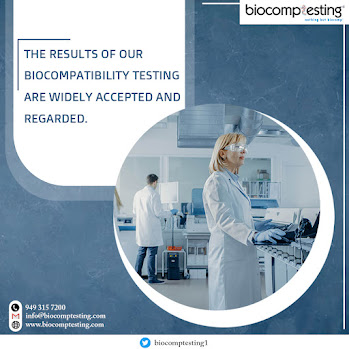Medical device manufacturers have a lot to keep
track of when it comes to ensuring their devices are as safe as possible.
Medical device developers typically test their products in a controlled
environment, such as a laboratory or an operating room. However, that does not
mean medical devices will function the same way outside those settings.
Biological variability is one of the biggest
challenges for medical device safety. This is because the human body differs
from one person to another in so many ways, which can have an impact on what
people tolerate and how they react to different treatments.
Biological Compatibility Index (BCI)
Biochemical compatibility testing (BCI) is used to
assess how well a given medical device will work when implanted in a particular
patient. The BCI numbers are intended to reflect the degree of risk to the
patient posed by the procedure, as well as the degree of risk to the medical
device posed by the patient's biological makeup.
An accreted biocompatibility lab can test different
aspects such as Cytotoxicity, Irritation, Sensitization, Hemocompatibility,
Toxicity, and Implantation. This way, the lab can ensure whether it is safe for
the patient or not. Along with pharmaceutical companies, many medical device
makers take help from an accreted lab for biocomp testing.
What Are the Benefits of Improving Medical Device Biosafety?
The biocompatibility concept was introduced by
Harvard Medical School back in 2015 to address this challenge and help improve
the quality of life for patients undergoing surgery. This topic has been
gaining significant attention in recent years, as both surgical and medical
device risks are amplified by biological variability. The BIO-Comfort concept
aims to address these challenges by developing and testing technologies to
minimize variations in the body's response to implanted medical devices.
For this reason, it is important that the biocompatibility
for medical devices test should be done from an accreted
laboratory. You need to ensure that the labs are ISO 17025, GLP, and AAALAC
accredited.
- Make
sure the biocompatibility test lab is able to do these tests quickly
- Make
sure the biocompatibility test lab deliver consistent and reliable rest
result
- Make
sure the biocompatibility test lab does these tests at an affordable price
Limitations of biocompatibility Testing
There are some limitations to biocompatibility
testing. First, this method can only detect so-called “in vivo” reactions. This
means that the device will not be completely safe if it is implanted in a lab
animal, for example, but a reaction may occur in a person who acquires the
device in a different way.
Though the BIO-Comfort concept is still in its
infancy, its potential to revolutionize medical device development and testing
is undisputed. Medical device manufacturers will soon be able to test their
products on humans, who are much more complex organisms than lab rats or
computer models, giving them an unprecedented look into how their devices will
function in the real world. Quick and reliable biocompatibility test results
help medical companies develop new medical products for mankind.



Comments
Post a Comment